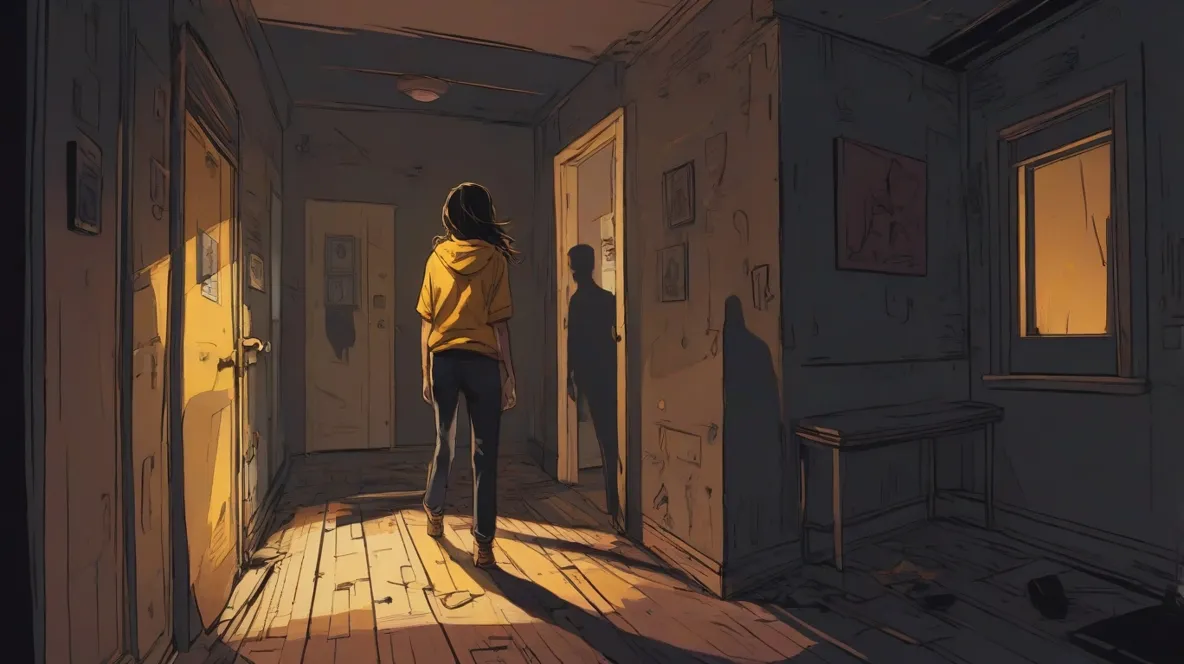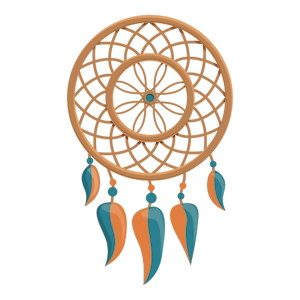What Does It Mean to Dream of Fear 1
Posted on: November 1, 2024 | Last updated: February 19, 2025
Fear in dreams often symbolizes unresolved issues, anxiety, or personal insecurities. It can serve as a reminder to confront challenges and may reflect a sense of vulnerability. Understanding fear can lead to personal growth and empowerment.

Fear
Threats and fear
Leading category
| Anxiety about future |
| Unresolved inner conflict |
| Need for self-reflection |
Was does Fear mean in a dream?
- Fear in dreams often symbolizes unresolved issues, anxiety, or personal insecurities. It can serve as a reminder to confront challenges and may reflect a sense of vulnerability. Understanding fear can lead to personal growth and empowerment.
Fear is a powerful emotion that can manifest in dreams in various forms. It often reflects the subconscious mind’s response to stress, anxiety, or unresolved issues in waking life. When fear appears in a dream, it may symbolize a sense of vulnerability or a threat that feels overwhelming. This emotion can be linked to personal insecurities, fears of failure, or concerns about the future. Understanding the context of fear in dreams can provide valuable insights into one’s emotional state.
In the realm of a dream book, fear may represent different aspects depending on the specific details of the dream. For instance, dreaming of being chased can indicate avoidance of certain problems, while falling may symbolize a loss of control. The interpretation can vary widely, and it is essential to consider the dreamer’s personal experiences and feelings. Fear can also serve as a catalyst for change, prompting individuals to confront their anxieties and seek resolution.
Additionally, fear in dreams can highlight the importance of facing one’s fears in real life. It may serve as a reminder to address unresolved issues or to take action in situations that cause discomfort. Recognizing the sources of fear can lead to personal growth and empowerment. Engaging with these emotions through dreams can facilitate healing and understanding, allowing individuals to move forward with confidence.
Ultimately, fear is a complex symbol in the world of dreams. It can represent not only what is troubling the dreamer but also what needs to be acknowledged and addressed. By exploring the nuances of fear within the context of a dream book, one can uncover deeper meanings and insights that may guide them toward a more fulfilling life. Embracing fear as a part of the human experience can lead to greater self-awareness and resilience.
Meaning in dream books
Psychoanalytical Interpretations of Fear in Dreams
1. Fear as an Expression of Anxiety: From a psychoanalytic perspective, fear in dreams is often interpreted as a manifestation of anxiety. It reflects the dreamer’s internal conflicts and unresolved issues that may be causing stress in their waking life.
2. Fear and Repressed Emotions: Psychoanalysis suggests that fear can be a sign of repressed emotions or traumas. The dream may be urging the individual to confront these feelings to achieve emotional healing and self-acceptance.
3. Fear as a Defense Mechanism: In the psychoanalytic framework, fear may act as a defense mechanism to protect the ego from confronting painful realities. The dreamer may be using fear to avoid facing deeper psychological issues that require attention.
Symbolic Interpretations of Fear in Dreams
1. Fear as a Warning Sign: In esoteric symbolism, fear often manifests as a protective mechanism, alerting the dreamer to potential dangers or unresolved issues in their waking life. It serves as a reminder to confront challenges rather than avoid them.
2. Fear and Transformation: Fear can also symbolize the process of transformation. In many spiritual traditions, facing one’s fears is seen as a necessary step towards personal growth and enlightenment, indicating that the dreamer is on the verge of a significant change.
3. Fear as a Reflection of the Subconscious: Esoterically, fear may represent hidden aspects of the self that need to be acknowledged. It can signal the dreamer to explore their inner world and confront suppressed emotions or memories that are influencing their life.
Fear in different cultural contexts in dreams
Fear is a universal emotion that transcends cultural boundaries, yet its representation in dreams can vary significantly across different societies. In Western culture, fear often manifests as a response to the pressures of modern life, where the fast-paced environment and high expectations can lead to anxiety and nightmares. Dreams featuring fear may reflect personal insecurities or societal anxieties, highlighting the individual’s struggle to cope with overwhelming challenges. The interpretation of such dreams can often lead to a deeper understanding of one’s emotional state and the underlying issues that contribute to these feelings.
In contrast, Slavic cultures have a rich tradition of folklore that often incorporates elements of fear and the supernatural. Dreams that evoke fear may be interpreted as warnings or omens, suggesting that the dreamer should be cautious in their waking life. The Slavic belief in spirits and the afterlife adds a layer of complexity to the interpretation of fear in dreams, as it is often linked to ancestral connections and the influence of past generations. This cultural lens encourages individuals to confront their fears, viewing them as a pathway to personal growth.
Meanwhile, in Eastern cultures, particularly within the frameworks of Buddhism and Taoism, fear is often seen as an illusion that can be transcended through mindfulness and meditation. Dreams that evoke fear may serve as a reminder to the dreamer to seek inner peace and clarity. In this context, the experience of fear in dreams is not merely a reflection of external circumstances but an invitation to explore one’s inner landscape and cultivate a sense of harmony. This perspective encourages individuals to embrace their fears as opportunities for spiritual awakening.
Lastly, in Oriental traditions, fear is frequently intertwined with the concepts of fate and destiny. Dreams that include elements of fear may be interpreted as a reflection of the dreamer’s current path in life, urging them to reassess their choices and align with their true purpose. The symbolism of fear in these cultures often emphasizes the importance of balance and the need to confront one’s fears to achieve personal fulfillment. By understanding the cultural nuances surrounding fear in dreams, individuals can gain valuable insights into their emotional and spiritual journeys.
Fear in other contexts of use
Fear of Heights
This context represents anxiety about being in high places, often symbolizing a fear of losing control or facing challenges in life.
Fear of Failure
This scenario reflects worries about not meeting expectations, whether personal or professional, indicating a struggle with self-esteem.
Fear of the Dark
This element signifies the unknown and can represent deep-seated fears or anxieties that are often hidden from our conscious mind.
Fear of Rejection
This context highlights concerns about acceptance and belonging, often linked to social situations and personal relationships.
Fear of Public Speaking
This scenario indicates anxiety about being judged or evaluated by others, showcasing a struggle with self-confidence.
Fear of Losing Loved Ones
This element symbolizes deep emotional attachments and the anxiety that comes with the thought of separation or loss.
Fear of Change
This context represents resistance to new experiences or transitions in life, often linked to comfort zones and stability.
Fear of the Unknown
This scenario signifies apprehension about the future and uncertainty, reflecting a natural human instinct to seek security.
Fear of Intimacy
This element highlights anxieties surrounding close relationships, often stemming from past experiences or emotional vulnerabilities.
Fear of Being Trapped
This context symbolizes feelings of helplessness or lack of control in certain situations, often reflecting personal dilemmas.
Fear of Losing Control
This scenario represents anxieties about managing one’s life or emotions, often linked to stress and overwhelming responsibilities.
Fear of Death
This element signifies existential concerns and the natural fear of the unknown that comes with mortality.
Fear of Being Judged
This context reflects worries about how others perceive us, often linked to self-image and societal expectations.
Fear of Isolation
This scenario symbolizes anxieties about being alone or abandoned, often tied to feelings of loneliness and depression.
Fear of Confrontation
This element highlights avoidance of conflict, indicating a struggle with assertiveness and communication.
Fear of Losing Identity
This context represents concerns about personal values and self-worth, often linked to life transitions or crises.
Fear of Failure in Relationships
This scenario signifies anxieties about romantic or familial connections, often rooted in past disappointments.
Fear of Authority
This element symbolizes resistance to control or oppression, reflecting personal struggles with power dynamics.
Fear of the Future
This context represents apprehensions about what lies ahead, often tied to personal goals and aspirations.
Fear of Inadequacy
This scenario highlights feelings of not being enough, often linked to comparisons with others and self-doubt.
Fear of Change in Routine
This element signifies anxiety about disruptions in daily life, reflecting a need for stability and predictability.
Fear of Losing Freedom
This context symbolizes concerns about restrictions or limitations, often tied to personal choices and autonomy.
Fear of Commitment
This scenario highlights anxieties about long-term relationships or responsibilities, often reflecting personal insecurities.
Fear of the Future of the World
This element signifies concerns about global issues, reflecting a collective anxiety about societal changes and challenges.
Fear of Technology
This context represents apprehensions about the impact of technology on life, often tied to feelings of alienation or loss of privacy.
Fear of Aging
This scenario symbolizes anxieties about physical decline and the passage of time, often linked to self-image and vitality.
Fear of Losing Skills
This element signifies concerns about competency and relevance, often tied to career or personal development.
Fear of Being Unprepared
This context reflects anxieties about facing challenges without adequate resources or knowledge, often linked to self-doubt.
Fear of Being Exposed
This scenario symbolizes worries about revealing true self or vulnerabilities, often tied to personal insecurities.
Fear of Losing Control Over Emotions
This element signifies anxieties about managing feelings, often reflecting internal conflicts and emotional turmoil.
Fear of Being Overwhelmed
This context represents apprehensions about handling responsibilities, often linked to stress and burnout.
Fear of Losing Touch with Reality
This scenario symbolizes concerns about mental health and stability, often reflecting feelings of disconnection.
Fear of Being Unloved
This element signifies deep emotional fears surrounding affection and acceptance, often tied to past experiences.
Fear of Facing the Past
This context represents apprehensions about unresolved issues or traumas, often linked to personal growth and healing.

